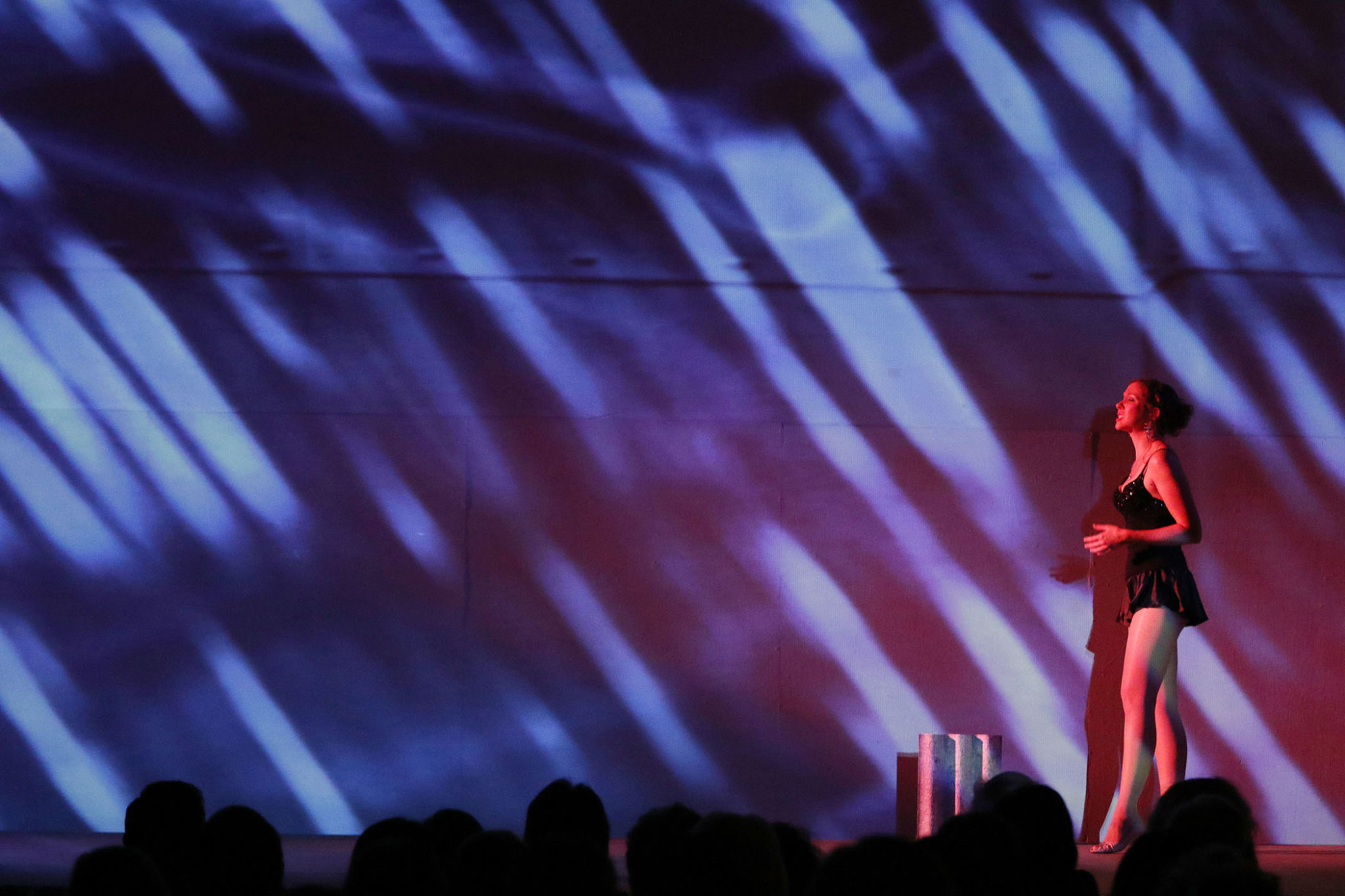Get your tickets for the last two performances of Siren Song: tonight, March 28, 8 p.m., and March 29, 4 p.m. For more information, visit hawaiiopera.org.
Poor sap. There’s a moment in Hawaii Opera Theatre’s production of Siren Song where belief is actually suspended, where you forget that you’re in a warehouse in the contested and developing Kaka‘ako neighborhood, amidst a growing tent city of homeless residents and several new residential towers. It’s a lovely moment, like in the throes of maddening obsessive love; it’s just about this poor sap, this hapless sailor who wanted so much to have a girlfriend and didn’t have proper friends to tell him he’s being played like a banjo. By the time the spell lifts on the tightly constructed, discernible narrative, by the time you’ve gotten the hang of listening to character development in song, it concludes, in utter devastation.
Produced by Hawaii Opera Theatre, Siren Song is one of the few occasions that the opera ventures away from traditional venues. It’s a chamber opera, in that it’s meant to be performed with a smaller chamber ensemble, as is necessary for the warehouse setting. Davey, a young foolish bloke of a seaman, begins a correspondence with Diana, a model and shop girl, who is suffering from some sort of esophageal cancer, can’t ever seem to make it to the phone, and sends her kind-of-shady brother to meet up with Davey when he’s stationed in Thailand. Seem like something only a dumb sailer would get involved with? Of course. The opera was written by Jonathan Dove, based off of a book by Gordon Honeycombe, which was based off of a true story. It’s all the more believable as these things happen all the time: There are con-people everywhere, who can psychologically work themselves into jacking others out of their life savings using all the tools of romance, faith, and promises of wealth. This is the story of an Englishman, but it could be any fool. But I digress.
In an opera, unlike musical theater, it’s the music which trumps the words as the driving force of the narrative. The jazz riffs that the local ensemble plays as the audience takes its seats are a warm-up for what is a tempered, virtuosic performance conducted by Vincent de Kort, who, himself a character, looks all the part of the wiry-haired wand-wielding maestro. Davey, played by Vale Rideout, sings often to Diana, played by a phenomenal Rachel Schulz, and is eventually, as we learn, the victim of a catfish scheme (as we’d call it in the blog age) by Diana’s brother, played by Jonathan Reed. Davey sings about love, in gorgeous libretto but with cringe-worthy lyrics, as Diana sings of how absolutely terrible humans can be to each other. If you’ve been adventurous, or unlucky, then you know what it’s like to fall in love with a ghost, or worse, someone’s version thereof. When loneliness takes hold, who wouldn’t dream of a faraway beach with a new love, a gorgeous and articulate one no less?
Despite the novel location, the majority of the attendees at the performances have been the types of people one might associate with the opera. Think graying hair, no second thought about valet service, linen and glasses. The story, though, is about young people, and as Davey pours his heart out in song, the millennial romantic relationship—cast alongside images of the forlorn sea, clipper ships, anchors, and mid-century sailor tattoos—feels altogether misplaced when related to the real accounts of people stuck on boats. Whalers, traders, missionaries, or in the modern era, sailors and members of the armed forces, write memoirs with common themes: cramped boredom punctuated by frantic work, terror, small acts of anarchy, subversion, and the unrelenting urge to get the hell off the boat and into a lover’s arms. It’s the sort of experience that is only romantic from afar.
In that displaced, unromantic way, Siren Song is an ode to the ways that lonely hearts can bleed into the ocean. Diana’s song to Davey is less reminiscent of the eponymous mythical women who lured Odysseus’ men to their doom than that of a famous Peanuts comic strip by Charles Schultz. The one where Charlie Brown and Lucy sit at the phonograph, and Charlie begins with, “This song always depresses me.” A few frames later, he says, “Play it again, will you?”
Don’t miss Hawaii Opera Theatre’s upcoming production Sweeney Todd, about a man with one thing on his mind: revenge. April 24, 26, and 28 at the Blaisdell Concert Hall. For more information, click here.

